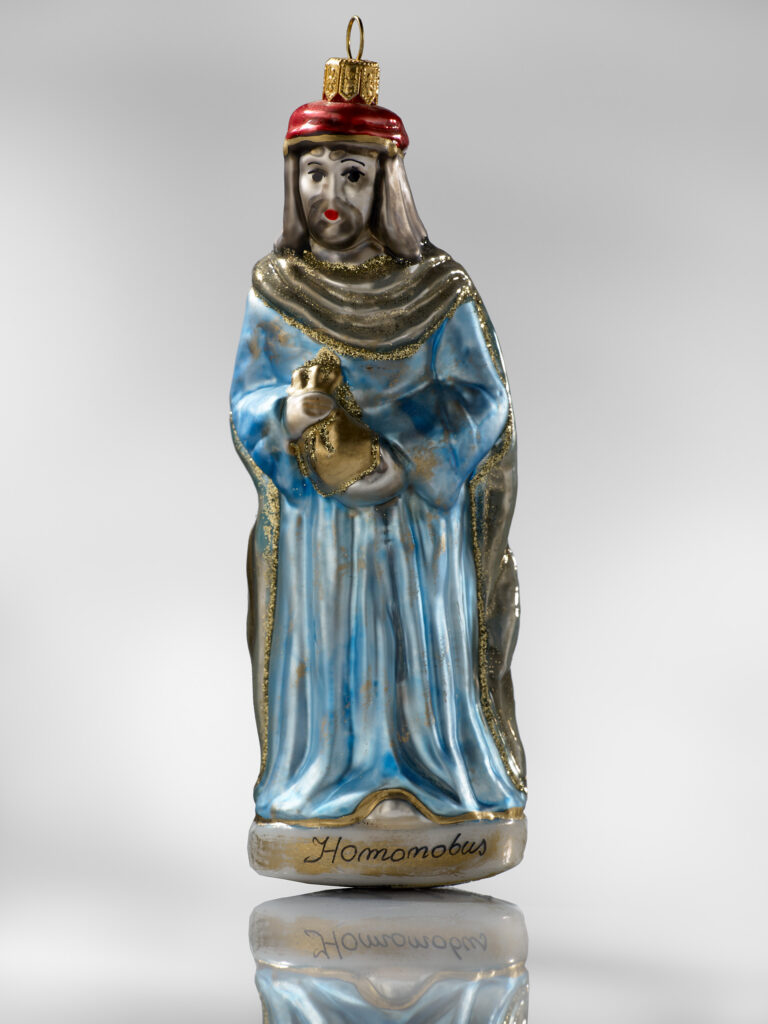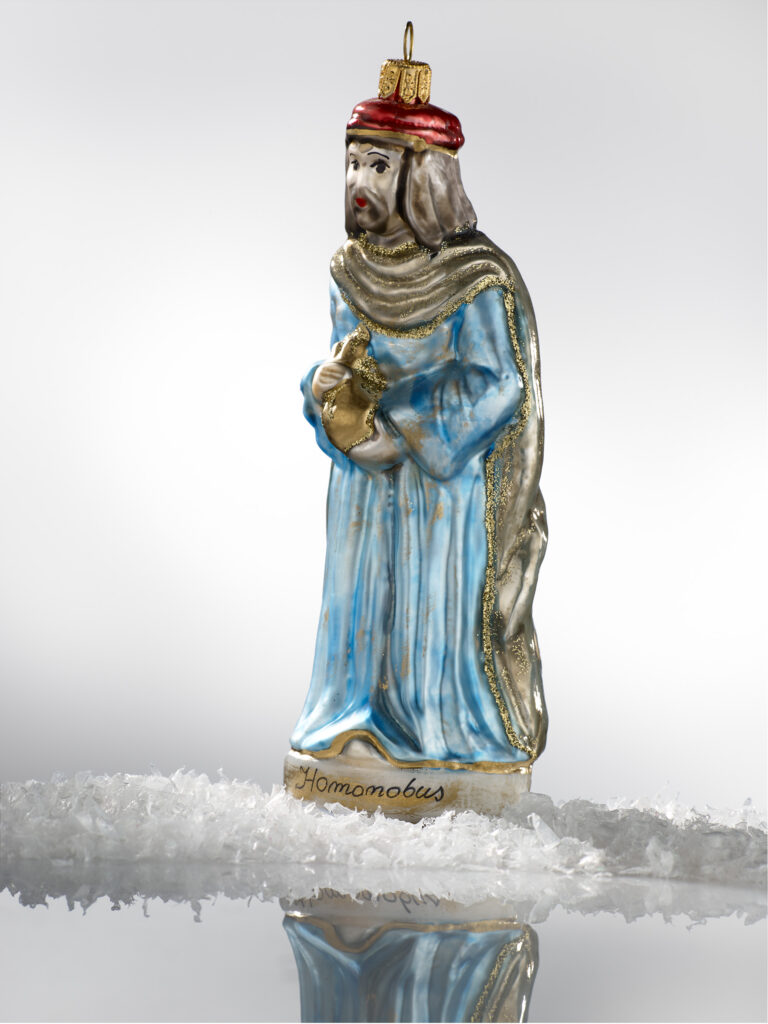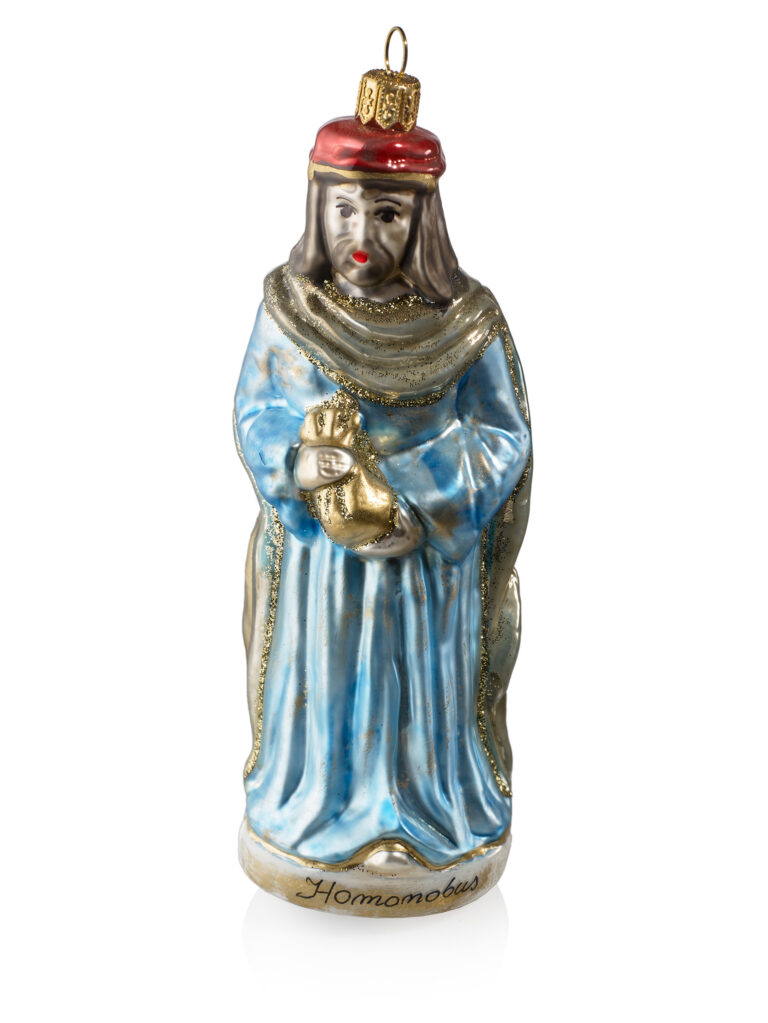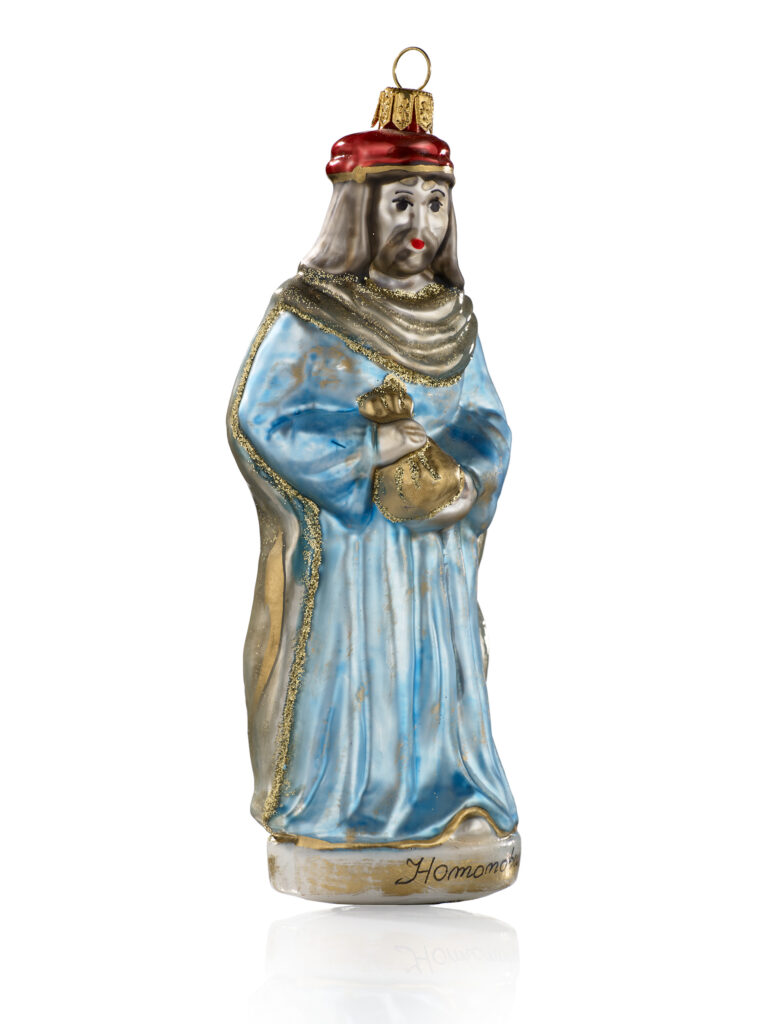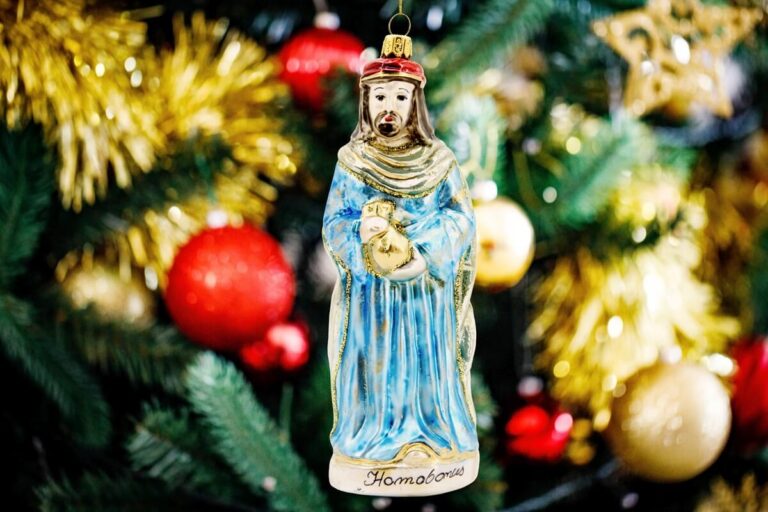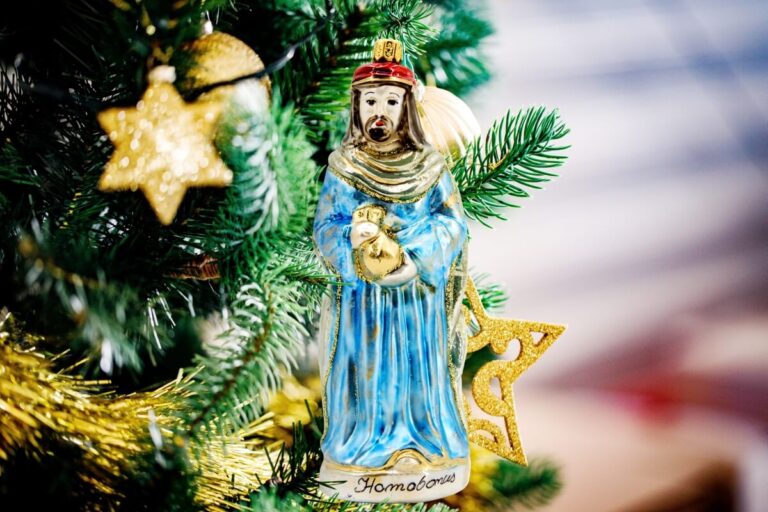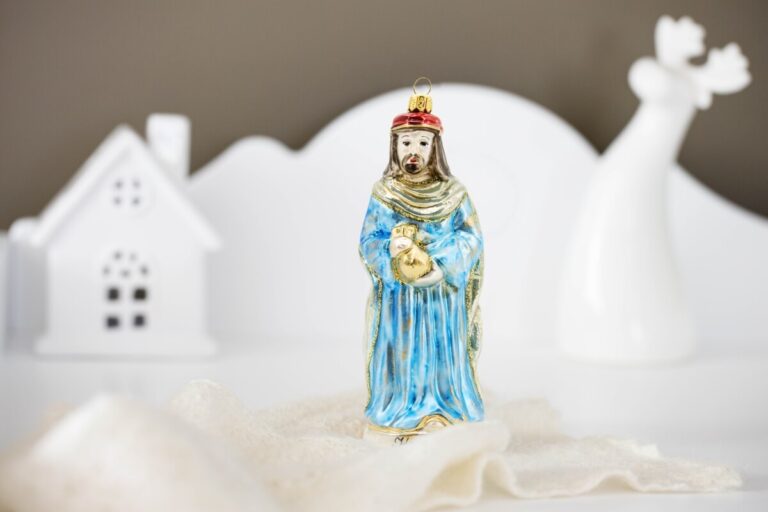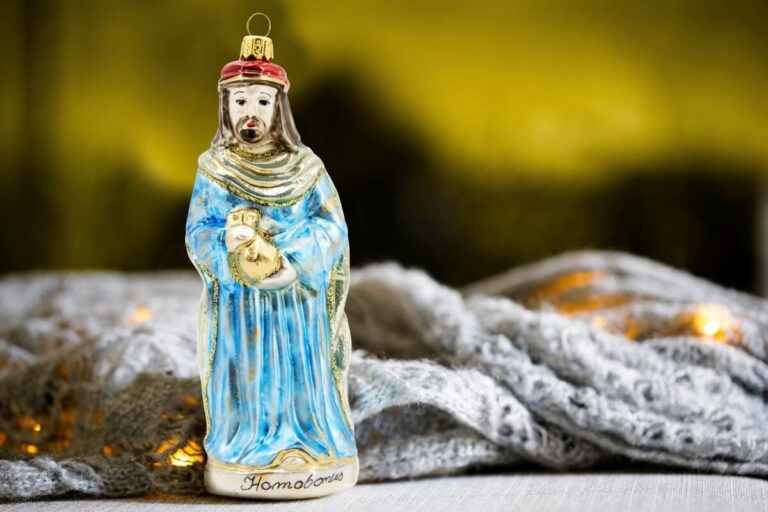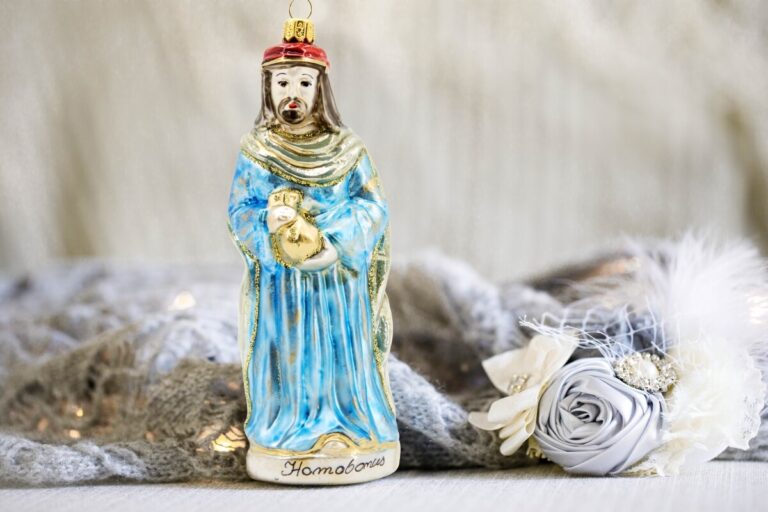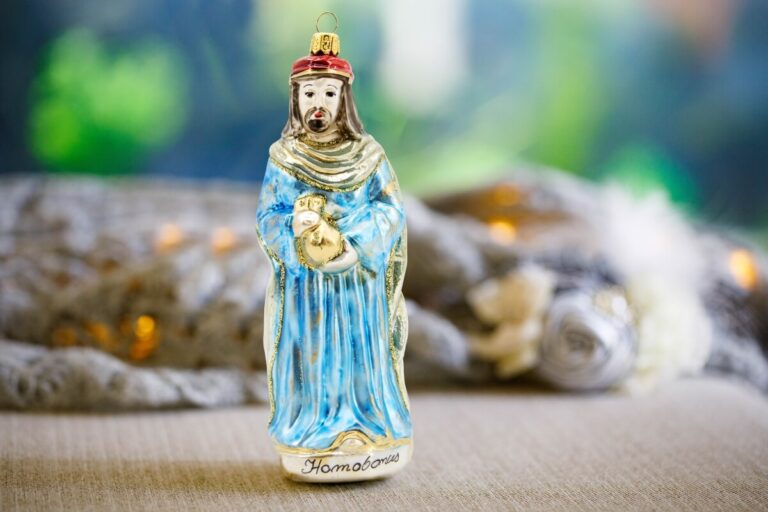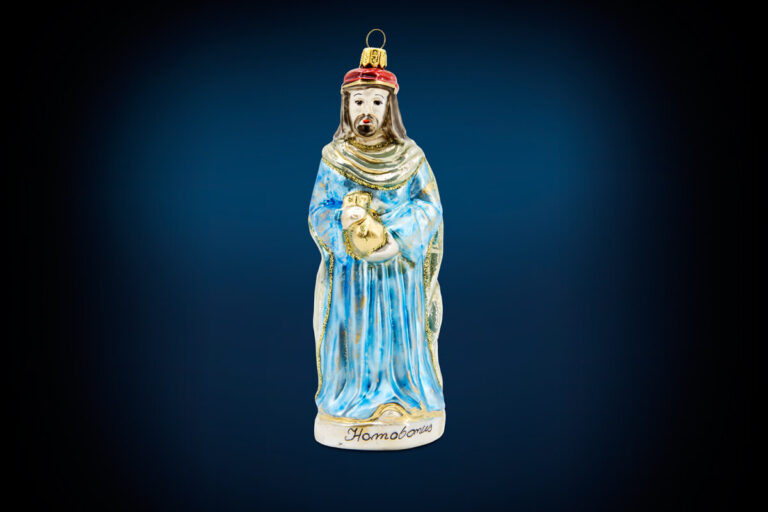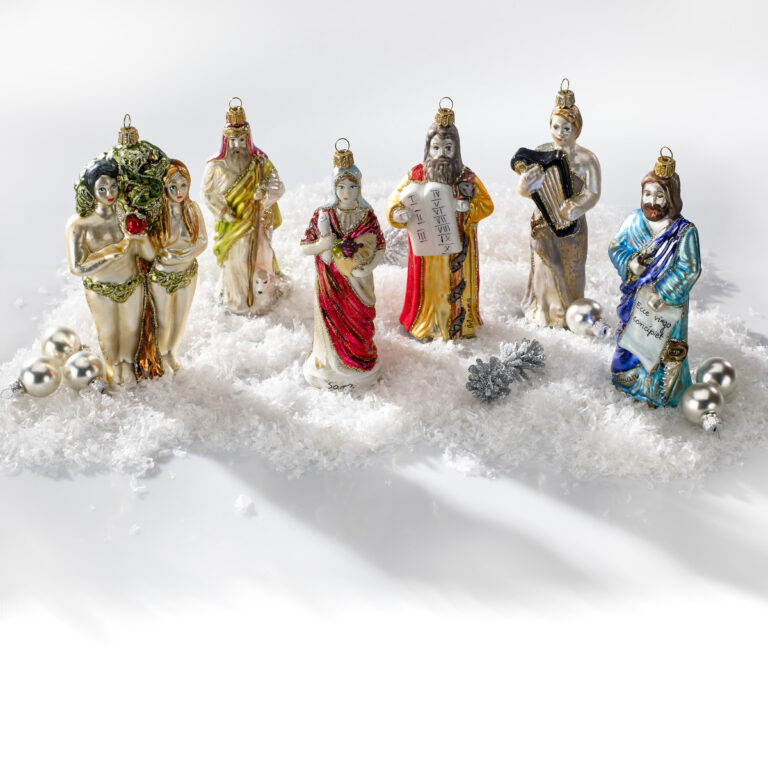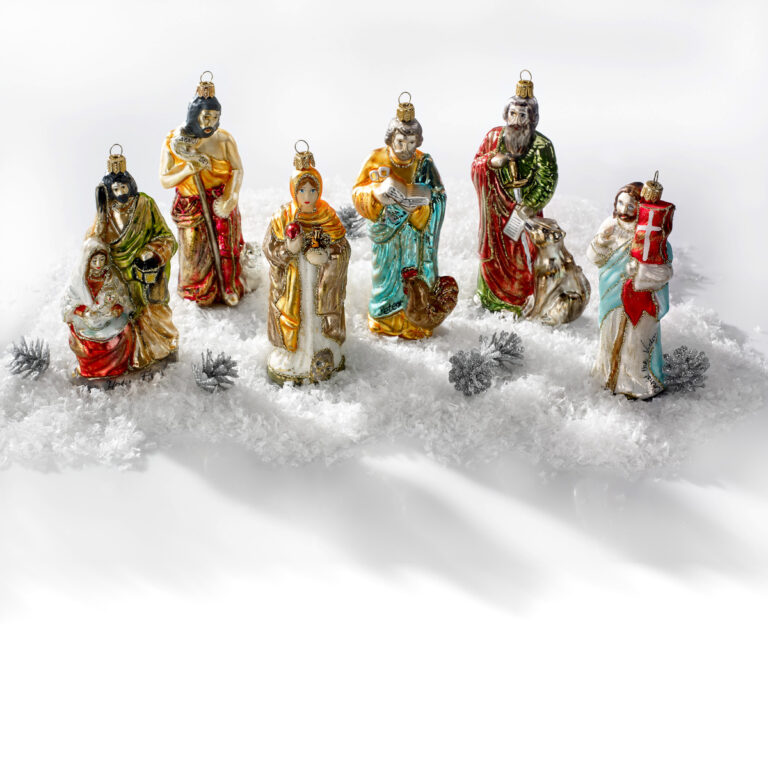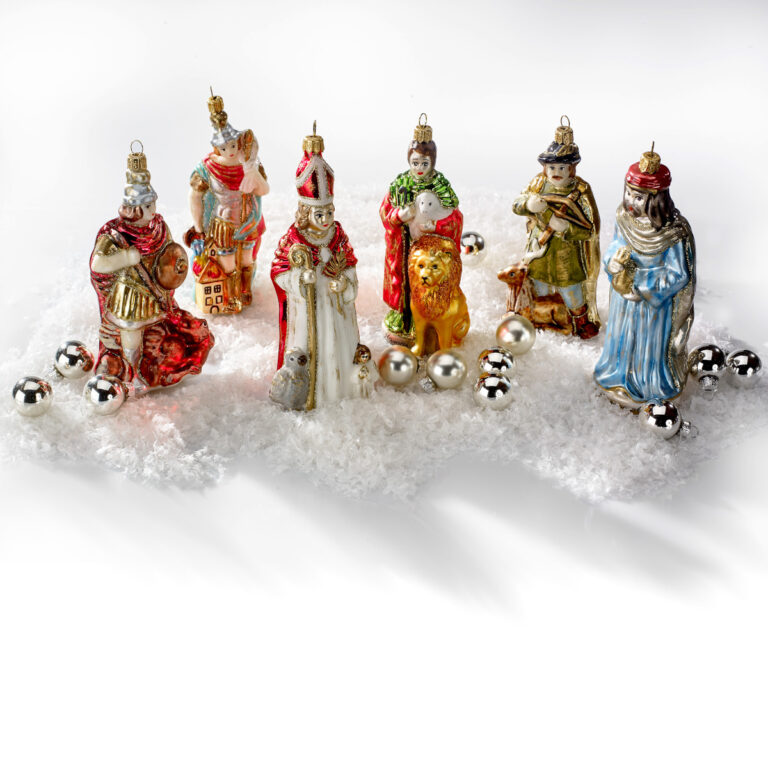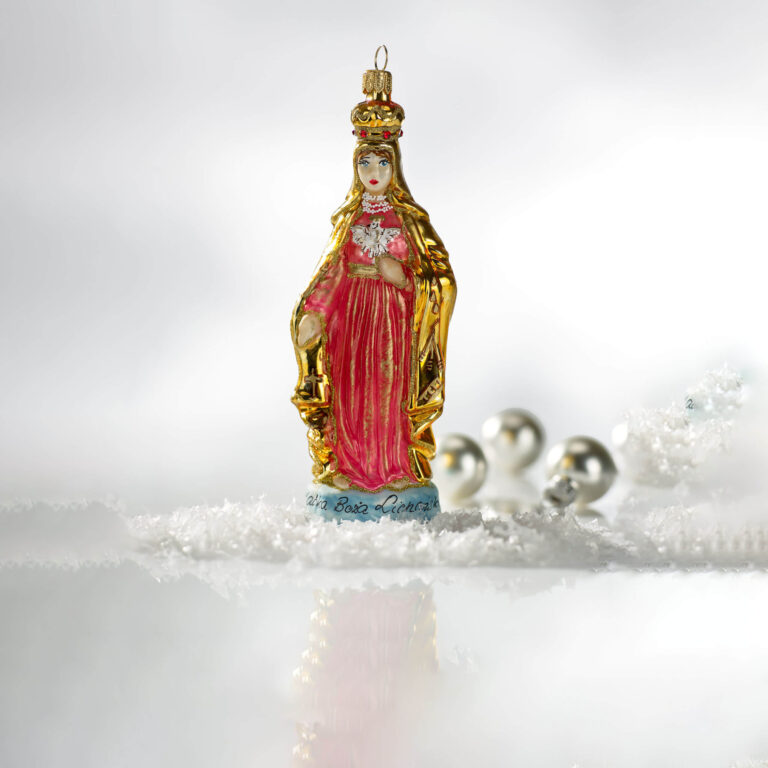Homobonus
The Christmas ball represents a figure of Saint Homobonus. It is designed to be hung on a Christmas Tree or exposed on a display stand.
Saint Homobonus is presented in merchant’s robes, and in his hand he is holding a bag of money.
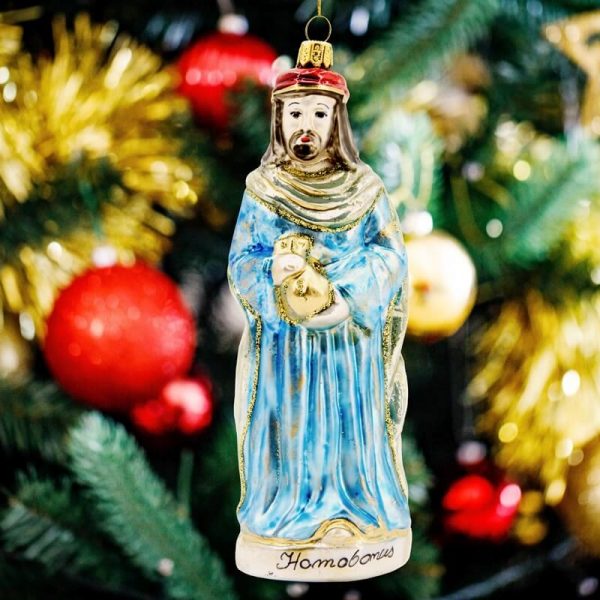
Attributes
A bag of money
The money bag is a symbol of charity. It is the proof that wealth does not oppose the church teachings and that using money in a right way can lead to holiness.
What do we remember about the life of Saint Homobonus:
- Homobonus Tucenghi lived in the 12th century in Cremona, Italy. The date of his birth is not known. He died on 13th November 1197.
- Other modifications of his name are Homobonius, Omobono, Uomobuono.
- He was a merchant, and he inherited business from his father.
- He had a wife and children, but there is no information about them.
- Thanks to his innate talents he had been developing the business and he became richer.
- He carried out extensive charitable activities, including feeding, curing, and educating the poor, also catechizing children, and burying the dead whose relatives could not afford to pay for the burial themselves.
- He actively participated in the life of the church.
- He supported the idea of the participation of the laity in religious life.
- He was respected in the town, so he often acted as an arbiter settling arguments between two opposing sides.
- His attitude to life made his family and other merchants regard him as an eccentric.
- He died while attending mass.
- His tomb quickly became a destination of pilgrimages due to miracles that occurred there.
- 14 months after Homobonus death, Pope Innocent III canonised him.
- His body still rests today in the crypt of Cremona Cathedral.
- In the United States his image can be found in numerous companies and enterprises as he is treated as a role model.
- Pope John Paul II enumerated the virtues of Homobonus in a letter to the Bishop of Cremona in 1997.
- The period between November 13th, 1997 and January 12th, 1999 was “The year of Saint Homobonus” in Cremona.
- Homobonus is set as an example by entrepreneurs wishing to run their businesses according to Christian values.
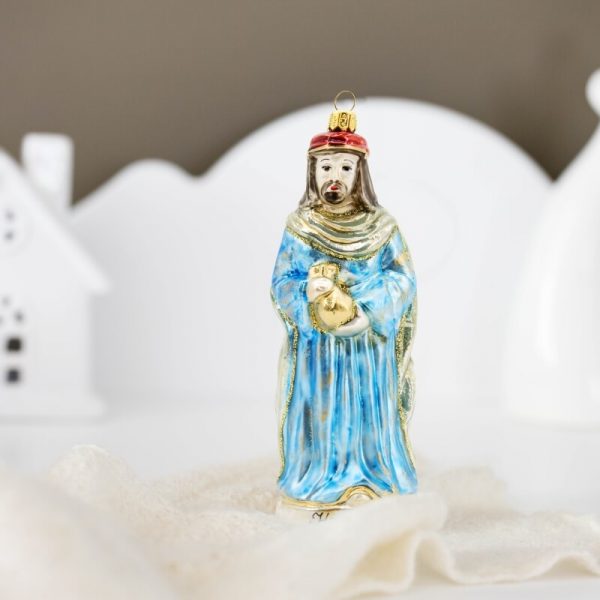
Homobonus Tucenghi lived in the 12th century in Cremona, Italy, and he ran his business there. From his father he inherited a business connected with the cloth trade. He was a very skillful and hardworking merchant, and that helped him greatly increase his wealth. He believed that success in business was a grace from God, but it also came with great responsibility.
The name Homobonus comes from Latin and means 'good man'.
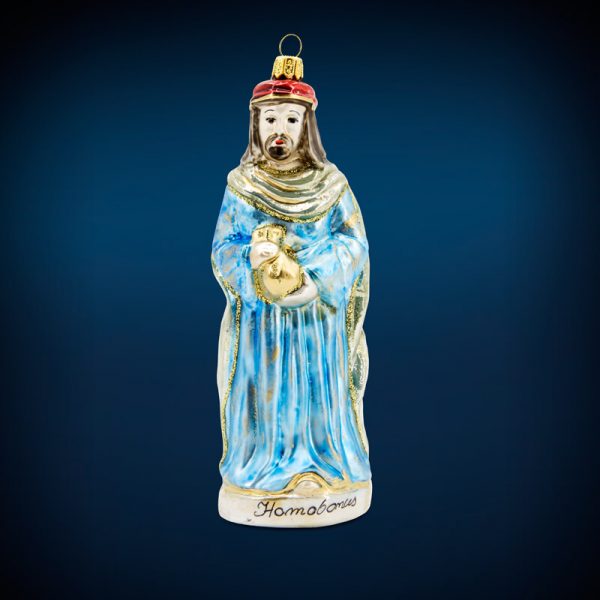
He is the only saint canonised in the Middle Ages who was not a priest, martyr, or an aristocrat.
His feast day is celebrated by the Catholic Church on November 13, that is the date of his death.
Homobonus is the patron saint of his hometown, Cremona in Italian Lombardy. In addition, his intercession is invoked by merchants, tailors, shoemakers, and clothworkers; and among the more modern professions by traders, economists, businessmen, and entrepreneurs. Poor people are especially favoured by him.
Browse collections
How can I order a set of
educational baubles?
Check how to order this unique collection of educational Christmas baubles now and together with your child discover how pleasant and enjoyable it is to learn about Salvation through stories.
If you want to receive information
about news – enter your e-mail
We will process your data in accordance with our Privacy Policy.
